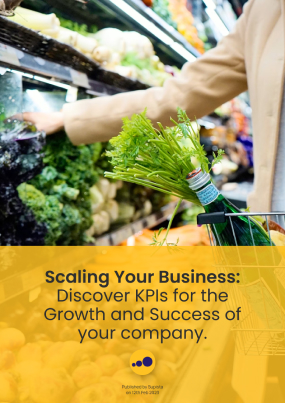 New
NewScaling Your Business
Discover KPIs for the Growth and Success of your company
The Fast-Moving Consumer Goods (FMCG) industry constantly evolves, and companies face various challenges as they strive to grow and succeed....
From analytics frameworks to ready-to-use checklists, dive into our growing library of ebooks designed to help you make sharper, faster decisions.


Trending now
The importance of data in today's fast-paced economic world cannot be overstated. Also, to remain competitive, leaders of FMCG companies must have ready access to reliable and up-to-date information. This is where BI software, or business intelligence, comes in. The global business intelligence market was valued at $22.26 billion in 2020 and is expected to rise at an 8.7% CAGR between 2021 and 2028, reaching $43.03 billion by 2028. One of the primary factors driving the growth of this market is the increasing demand for real-time operational insights (Jugovic Spajic, 2023).
A growing library of research-backed insights on analytics-led transformation, operations and growth for FMCG teams.
 New
NewDiscover KPIs for the Growth and Success of your company
The Fast-Moving Consumer Goods (FMCG) industry constantly evolves, and companies face various challenges as they strive to grow and succeed....
 New
NewWhether regulatory, technological, or supply chain-related, bottlenecks can create delays, increase costs, and impact customer satisfaction. For example, according to...
 New
NewSteven Hawking, a world-renowned physicist, believes that "Artificial intelligence is the future, not only for the FMCG industry but for...

"Artificial intelligence is the new electricity" -Andrew Ng, former chief scientist at Baidu and co-founder of Coursera. According to MarketsandMarkets,...

Revolutionizing FMCG Manufacturing and Saving Companies Thousands
According to Intel's CEO Pat Gelsinger, "Data is the new science. Big data holds the answers." He emphasizes the importance...

The great philosopher Aristotle once said, "We are what we repeatedly do. Excellence, then, is not an act, but a...

Insider Tips for Optimizing Your Business Operations
"The only way to do great work is to love what you do."- Steve Jobs. In today's highly competitive business...

How new age Analytics Can Mitigate Brand Damage
According to a study by VentureBeat (2022), 76% of consumers would stop doing business with a brand following a data...

American business magnate and philanthropist Bill Gates once said: "The most meaningful way to differentiate your company from your competition,...
Discover the gaps, risks, and inefficiencies in your procure-to-pay cycle. Book a free session with our Automation Experts and uncover how AI can transform your operations end-to-end.
Supista uses cookies to keep the site running, personalise optional features, and improve procurement insights. Choose which categories we can activate.
Review the Cookies & Tracking Notice